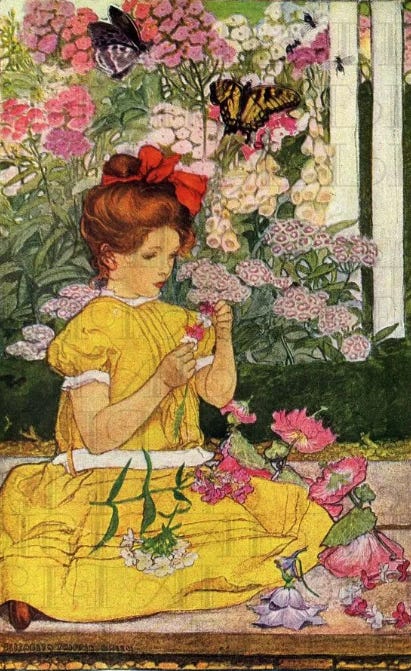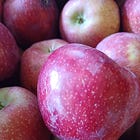Families like gardens are grown
Children like critters are raised
Grandchildren are seeds that are sown
In the rich dirt of childhood days
In this transmission we tell you that getting messy and biological in your family with raising food and livestock or just with diapers and kids is important to your kids one day having kids of their own.
There are essentials to being part of a living human family, a real family, a generational family.
Running a homestead wasn’t one of them. It still isn’t.
Whether or not you homestead, you should and must engage in some form of household primary production, true.
Whether you take that household production to the point of having a homestead, a big garden, critters running around, that depends on your circumstances. Your particular family model doesn’t need to scale to everyone. It just needs to have a family success rate of n=1.
Yet the sheer number of healthy families that are all in on household production to the extent that it would qualify as homesteading, well, that gives us pause. Maybe you should give it serious consideration. And even if you don’t homestead per se, you should still try to engage your family in agriculture and homesteading type activities as much as possible. Take them to a u-pick. Have them help a farmer. Butcher an animal. Ferment food. Have pets they take care of.
Or more generally, involve them in messy biological activities. Have them change diapers, have them help bandage wounds, and help care for a sicky. Easier to do in a big family and yet one more reason big families have a generational advantage.
What’s the reason? What’s the advantage? Having children is fundamentally a biological, primitive process, especially for women. The more modern, clean, rationalized, antiseptic and programmatic the child’s upbringing, the more having children is a wild leap across a chasm into an unknown and frightening mode of life. That leap often doesn’t happen when the chasm is big.
We found this insight in two different essays recently on unrelated subjects.
We’re all atomized creatures of modernity; for most of us, having children is our last and only experience with primal, tribal, instinctive loyalty.
Next is a fascinating series on pro-natalist incentives. Whereas we have shown that almost all incentive programs are laughably small, this man suggests they also fail because they are badly targeted. In the process of so doing, he has this fascinating insight:
No pro-natalist policy has tried to recapture the substantial benefits of labor specialization in child-raising, including economies of scale, that once were captured by families in which the wife bore and raised as many as a dozen children.
Those benefits are not captured by families that raise only one or two children and in which both parents work outside the home most of their adult lives.
Such child-raising is the last substantial non-specialized labor in our world, and feels as anomalously difficult as growing one’s own food or making one’s own clothes.
“Ichabod,” the Asia Times (Our italics).
What an insight. Think about what it implies. Would it still feel as anomalously difficult for men and women who grew up growing some of their own food? Who had made some of their own clothes? The evidence is that it doesn’t.
The reasons people don’t’ want to commit to biological home production—it’s messy, it’s gross, it doesn’t always work reliably, it’s hard—are the reasons you should.
The eggs and the zucchini you raise turn into children and grandchildren.
Nothing in Heaven Functions as It Ought
Nothing in Heaven functions as it ought:
Peter's bifocals, blindly sat on, crack;
His gates lurch wide with the cackle of a cock,
Not turn with a hush of gold as Milton had thought;
Gangs of the slaughtered innocents keep huffing
The nimbus off the Venerable Bede
Like that of an old dandelion gone to seed;
And the beatific choir keep breaking up, coughing.
But Hell, sleek Hell, hath no freewheeling part:
None takes his own sweet time, none quickens pace.
Ask anyone, "How come you here, poor heart?"—
And he will slot a quarter through his face.
You'll hear an instant click, a tear will start
Imprinted with an abstract of his case.
X.J. Kennedy










